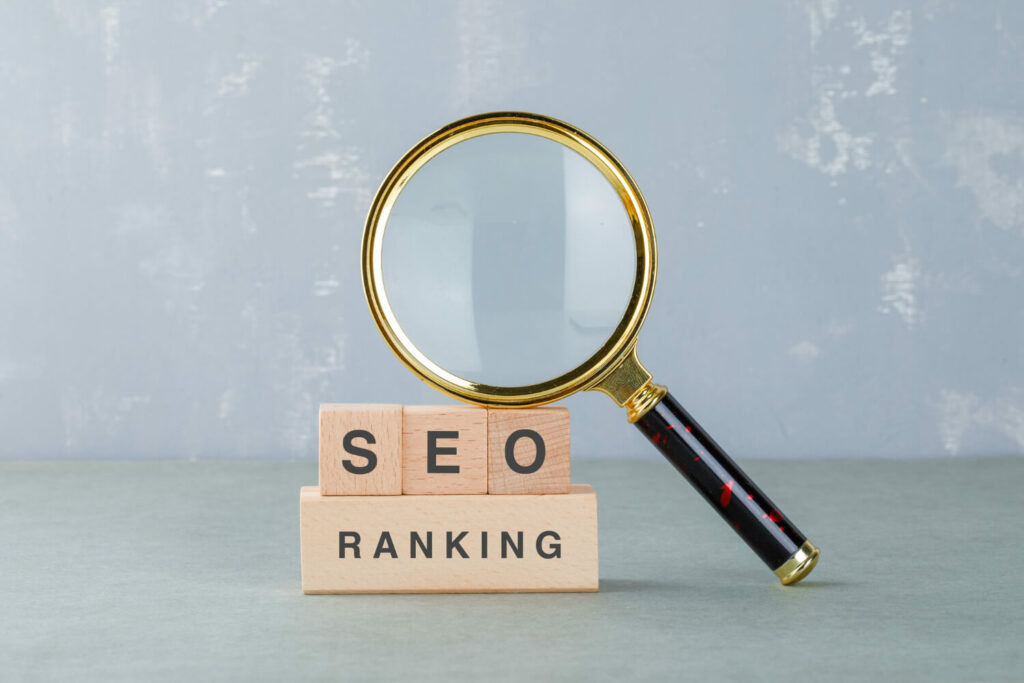
In the vast and ever-evolving digital landscape, where millions of websites compete for attention, achieving visibility and driving organic traffic to your site is a constant challenge. This is where search engine optimization (SEO) becomes your steadfast ally. While there are numerous factors that influence SEO, one aspect that holds paramount importance is relevance.
Relevance in SEO serves as the guiding force that determines how search engines perceive and rank your website. When your website aligns with the intent of search queries, offers valuable content, and establishes authority, it stands a higher chance of climbing the search engine rankings. In this article, we will delve into the world of relevance in SEO, exploring its significance, the power it holds in various aspects of optimization, and proven techniques to enhance your website’s relevance and authority.
So, let’s uncover the secrets of SEO relevance in 2023 and discover how optimizing search relevance can pave the way for targeted organic traffic, increased visibility, and ultimately, the success of your online endeavors.
What is Relevance in SEO?
Relevance refers to the degree to which your website’s content aligns with the search queries and user intent of your target audience.
When search engines evaluate the relevance of a website, they consider various factors such as keywords, backlinks, content quality, and user engagement metrics. By analyzing these elements, search engines determine the extent to which your website addresses the needs and interests of searchers.
Relevance goes beyond just incorporating keywords into your content. It encompasses a holistic approach that encompasses the overall alignment between your website and the search intent of users. In other words, relevance is about providing the most valuable and appropriate information to those seeking it.
What is an example of relevance?
Relevance in SEO encompasses two significant dimensions: literal and semantic.
Suppose you have a webpage discussing different types of cars. Within the content, you mention the word “speed” to describe the performance of sports cars. Now, if you include a hyperlink on the word “speed” that leads to a page about running shoes, there might be a literal contextual relevance between the terms “speed” and “running shoes.” However, the semantic meaning and intent behind the link do not align with the topic of cars.
In this instance, although there is a literal connection based on the word “speed,” the semantic relevance is missing. Search engines evaluate not only the literal context but also the overall meaning and intention conveyed by content and links. It is crucial to ensure that the semantic relevance of your links aligns with the thematic focus of your webpage.
To optimize your SEO endeavors, both literal and semantic relevance are vital. By maintaining a consistent and coherent topical approach throughout your content and links, you can enhance the overall relevance and authority of your website. This ensures that search engines accurately interpret the contextual and thematic significance, resulting in improved visibility and rankings in search engine results.
Remember, relevance is about understanding your audience’s needs, aligning your content with those needs, and optimizing your website to establish credibility and authority. By consistently delivering valuable and relevant content, you can create a meaningful connection with your audience and achieve success in the competitive landscape of SEO.
Why Relevance is Important for SEO
Relevance plays a vital role in the world of SEO. It directly impacts your website’s visibility, rankings, and ultimately, the success of your digital presence. Let’s delve into the key reasons why relevance holds such significance in the realm of search engine optimization.
- • Improved Search Engine Rankings: Search engines aim to deliver the most relevant search and valuable results to users. When your website aligns closely with the intent of search queries and provides high-quality, relevant content, search engines are more likely to reward it with higher rankings. By optimizing for relevance, you increase your chances of appearing on the coveted first page of search engine results.
- • Enhanced User Experience: Relevance is not just about appeasing search engines; it’s also about providing a seamless and satisfying user experience. When visitors land on your website and find the information they were seeking, it boosts their engagement, reduces bounce rates, and increases the likelihood of conversions. The more relevant and user-friendly your website is, the better the overall experience for your audience.
- • Targeted Organic Traffic: Relevance in SEO ensures that the traffic directed to your website is targeted and relevant to your niche or industry. By aligning your content with specific keywords and user intent, you attract visitors who are genuinely interested in what you have to offer. This targeted organic traffic is more likely to convert into leads or customers, driving the growth and success of your online business.
- • Establishing Authority: Relevance is closely tied to establishing authority within your industry. When your website consistently provides valuable, relevant content, it positions you as a trusted resource in the eyes of search engines and users alike. This, in turn, can lead to opportunities for collaboration, partnerships, and a strong online reputation.
Understanding the importance of relevance in SEO is the first step toward optimizing your website for success.
Crucial Insights on the Power of Relevance
Relevance serves as the link that connects your site to the specific needs and desires of your target audience. When your website aligns seamlessly with relevant search queries and provides content that is not only valuable but deeply resonates with your visitors, the impact can be transformative.
Search engines, driven by the relentless pursuit of providing the most relevant and meaningful results, recognize and reward websites that demonstrate a high degree of relevance. As a result, your website can climb up the search engine results rankings, positioning itself prominently in the eyes of potential customers.
Let’s explore the power of relevance in various aspects of SEO, shedding light on its multifaceted nature and far-reaching implications in the world of digital marketing.
Keyword Relevance
Keywords are the foundation of SEO, and their relevance is crucial for effective optimization. By conducting thorough keyword research, identifying focus keywords, and strategically incorporating them into your content, you align your website with the search intent of your target audience. This increases the chances of search engines recognizing your website as relevant and ranking it higher in search relevance results.
Backlink Relevance
Backlinks, or inbound links from other websites, serve as endorsements of your website’s credibility and website authority. However, it’s not just the quantity of backlinks that matters; their relevance is equally important. When your website receives relevant backlinks from reputable sources within your industry, it strengthens your website’s authority and signals to search engines that your content is valuable and trustworthy.
Link relevance pertains to the context and keywords used in the anchor text of inbound links pointing to your website. Search engines consider anchor text as an indicator of the content and relevance of the linked page.
Brand Relevance
Building a strong brand presence goes hand in hand with SEO success. The more relevant your brand is to your target audience, the more likely they are to engage with your website and trust your offerings. Brand relevance involves aligning your brand messaging, values, and positioning with the needs and desires of your target market, creating a cohesive and resonant experience for your audience.
Content Relevance
Content relevance is also known as topical relevance. Content is important for SEO, and its relevance is paramount. Producing high-quality, informative, and engaging content that directly addresses the needs and queries of your target audience establishes your website as a valuable resource. Additionally, staying up-to-date with current trends and utilizing tools like Google Trends can help you create content that remains relevant and resonates with your audience over time.
Page Relevance
Page relevance refers to the degree to which a specific webpage’s content is aligned with a particular topic or search query. It focuses on optimizing individual pages of a website to provide valuable and relevant information to users and search engines.
User Experience and Website Relevance
The user experience plays a crucial role in determining your website’s relevance. Search engines analyze user engagement metrics, such as bounce rate, time on page, and click-through rate, to assess the relevance and quality of your website. By optimizing your site’s structure, navigation, and overall user experience, you enhance its relevance and encourage visitors to stay longer, explore further, and engage with your content.
Mobile Relevance
With the increasing use of mobile devices for internet browsing, mobile relevance has become essential. Search engines prioritize mobile-friendly websites, as they provide a seamless experience for mobile users. Ensuring your website is responsive, loads quickly, and offers an intuitive mobile interface is crucial for maintaining relevance and visibility in search engine results.
Thus, in the field of relevance lies a mosaic of complexly interconnected elements that form the digital landscape. From the art of keyword research and optimization to building backlinks that exude relevancy, every aspect contributes to your website’s overall authority and trustworthiness structure.
What’s more, relevancy goes beyond individual pages, getting to the heart of your brand and its resonance with your target audience. Creating content that stays consistently relevant even when trends change can turn your website into a constant source of valuable information and raise your brand’s credibility.
By understanding and using the power of relevance in SEO, you can optimize your site to provide the most valuable and engaging experience for your target audience. As you navigate the world of SEO relevance, consider partnering with an experienced SEO company whose team of experts can help you develop a comprehensive SEO strategy tailored to your specific goals, including keyword research, content creation, backlink building, and more.

8 Proven Techniques to Boost your Website Relevance and Authority
In this chapter, we will explore a range of proven techniques that can significantly enhance your website’s relevance and authority in the eyes of search engines and your target audience. Implementing these strategies will help you optimize your SEO strategy and achieve better visibility and organic traffic.
1. Determine the Searcher Intent
Understanding the intent behind specific search queries is crucial for delivering relevant content. Analyze the types of queries your target audience is making and tailor your content to align with their intent. This will ensure that your website appears in front of the right audience, increasing the chances of engagement and conversions.
2. Сheck the Main Keywords
Keyword research remains a cornerstone of SEO. Utilize tools like Google Keyword Planner to identify relevant keywords and phrases that are popular within your industry. Incorporate these focus keywords naturally into your content, including titles, headings, and body text, to signal relevance to search engines.
3. Optimize the Meta Tags
Meta tags, including the title tag and meta description, play a crucial role in conveying relevance to search engines and enticing users to click through to your website. Craft compelling and concise meta tags that accurately represent the content on the respective pages, incorporating relevant keywords where appropriate.
4. Use Target Keywords in the URL and Headings
Incorporating focus keywords into your URLs and headings not only enhances the relevance of your content but also improves the overall structure and organization of your website. Search engines pay close attention to these elements when determining the relevance of a page to specific queries.
5. Link to Relevant Web Pages
Internal linking is an effective technique to boost relevance and help search engines understand the structure of your website. When creating content, strategically link to other relevant pages within your website, using descriptive anchor text that includes target keywords. This not only enhances user navigation but also reinforces the relevance of your content.
6. Create and Promote High-Quality Content
Content quality and relevance go hand in hand. Develop comprehensive, informative, and engaging content that directly addresses the needs and interests of your target audience. Consider incorporating multimedia elements such as images, videos, and infographics to enhance the user experience. Additionally, actively promote your content through various channels to increase its visibility and reach.
7. Build Relevant Backlinks
We wrote about why are backlinks important. Backlinks from reputable and relevant websites continue to be a crucial factor in SEO success. Develop a strategic outreach campaign to acquire backlinks from authoritative sources within your industry. Focus on quality over quantity, ensuring that the backlinks you acquire are from websites that are relevant and trustworthy.
8. Enhance Website Performance and User Experience
A well-performing website that offers a seamless user experience is essential for maintaining relevance and authority. Optimize your website’s loading speed, ensure mobile responsiveness, and improve overall site navigation and functionality. A positive user experience contributes to longer visit durations, lower bounce rates, and increased engagement.
By implementing these proven techniques, you can significantly enhance your website’s relevance and authority in the eyes of search engines and users. These strategies, when combined with a comprehensive SEO approach, will help you achieve higher rankings, attract targeted organic traffic, and ultimately drive the success of your online presence.
SEO Relevance: Final Thoughts
Relevance isn’t just a buzzword, it’s a guiding principle that can change your online presence and propel your site to greater success. We’ve uncovered the complex relationship between keywords, backlinks, content, and user experience, centered around the core principle of relevance. We’ve seen how aligning your site with your audience’s goals and providing valuable, targeted content can boost your visibility in search engine rankings and establish your brand as an authority voice in your industry.
Therefore, relevance is the key to unlocking success in SEO. By aligning your website with the search intent of your target audience, optimizing all aspects of your site, and consistently delivering valuable content, you’ll improve your website’s visibility, attract targeted organic traffic, and drive the growth of your online business.
At Mellow Promo, we understand the intricacies of SEO relevance, and we possess the expertise to optimize your website for maximum impact. Our team of skilled professionals can guide you through the complex world of keyword research, crafting compelling content, building relevant backlinks, and implementing effective strategies tailored to your unique goals and industry.
With our content marketing services, we can help you develop a comprehensive and holistic approach to SEO, ensuring that your website remains consistently relevant, engaging, and optimized for search engines. By leveraging our expertise, you can focus on your core business while we take care of the technical intricacies that drive organic traffic and enhance your online presence.
Take the next step in your SEO journey by partnering with Mellow Promo. Let us empower you with the tools and strategies needed to unlock the full potential of relevance, establish your brand as a trusted authority, and drive the growth of your business. Contact us today to discuss how our content marketing services can help you achieve your SEO goals.





